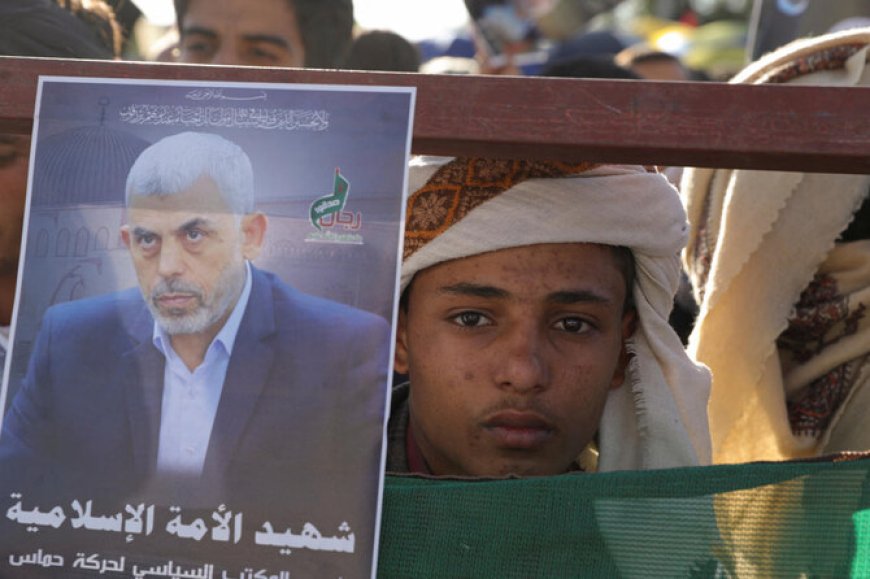Iran's Supreme Leader Ayatollah Ali Khamenei issued a resolute message on Saturday, declaring that the death of prominent Hamas leader Yahya Sinwar will not derail the broader objectives of the "Axis of Resistance." This alliance, which includes groups like Hezbollah in Lebanon and pro-Iranian factions in Iraq, Syria, and Yemen, has long been supported by Tehran in its opposition to Israel and Western influence in the Middle East.
Khamenei, addressing Sinwar’s death, acknowledged the loss but emphasized that the movement and its ideals would persist. “His loss is undoubtedly painful for the Axis of Resistance, but this front did not cease advancing with the martyrdom of prominent figures,” he said, reaffirming Iran’s unwavering support for Hamas. He added, “Hamas is alive and will remain alive,” underscoring Tehran’s commitment to continuing its strategic and ideological backing of the Palestinian resistance group.
Yahya Sinwar, who served as Hamas’ political and military leader in Gaza, played a key role in orchestrating militant operations and negotiating with external allies, including Iran. His death is seen as a significant blow to Hamas, but Khamenei’s remarks highlight Tehran’s long-term vision, indicating that the broader alliance of anti-Israel forces will endure.
This statement from Khamenei is also a reminder of Iran's influence over a wide network of militias and factions in the region that have united under the “Axis of Resistance” banner, from the Palestinian territories to Lebanon, Syria, and Iraq. For Iran, the ongoing conflict between Hamas and Israel is part of a larger ideological and geopolitical struggle against what it sees as Israeli and Western aggression in the region.
The death of Sinwar and the broader consequences of the ongoing conflict in Gaza will undoubtedly continue to test the cohesion of this Axis, but Khamenei’s statement reaffirms Iran’s determination to maintain its resistance strategy despite setbacks. As the violence intensifies, Iran’s role as a key player in shaping the dynamics of Middle Eastern geopolitics remains undeniable














































